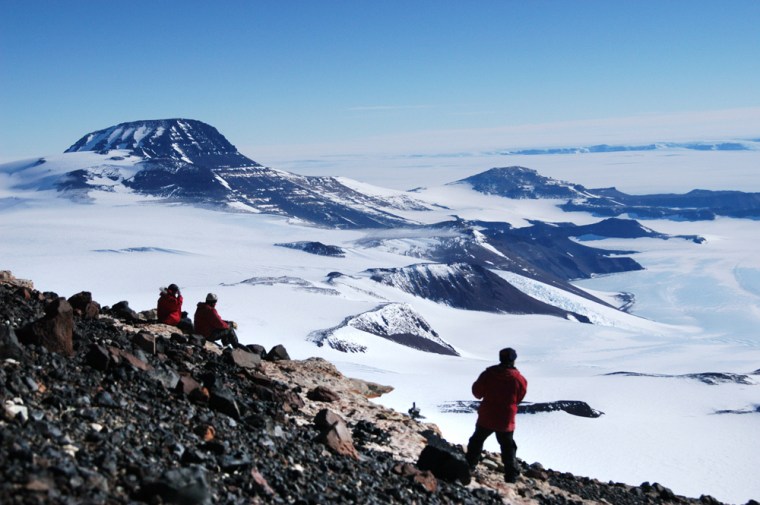For scientists, Antarctica is a deep freeze that may hold priceless scientific secrets. For intrepid tourists, the icy continent is just a cool place to visit.
Increasingly, the two are in collision.
More than 13,000 tourists arrived on the Antarctic peninsula near Chile during the last summer season, raising fears for its fragile ecosystem.
“We want them to understand there are very strict rules,” said Sharman Stone, from the Australian Antarctic Division.
The rules laid down by the United States and six other nations that have research bases on Antarctica govern everything from wildlife protection to the foods that tourists can bring ashore.
They apply especially to unsupervised “extreme” adventurers for whom few frontiers are as distant as Antarctica’s pristine landscape of infinite white, where the air can get colder than the most powerful industrial freezer.
The rules were highlighted in December when Australian aviator Jon Johanson was castigated for poorly preparing his solo flight over the South Pole.
His homemade plane was stranded on an icy runway near the edge of Antarctica because the U.S. and New Zealand bases refused to sell him fuel. Johanson eventually received fuel from a British pilot whose expedition was aborted by bad weather.
“He was advised that what he was attempting was unwise ... he still took the journey, he took it without official people knowing,” Stone said.
She denied a “no-help policy” was in force but said adventurers have to foot the bill for their rescue. Johanson insisted he had taken the safest options.
The swelling ranks of tourists have sent authorities scrambling to their policy books to tighten controls. But they can’t police the continent’s borders, nor is there a visa system that could regulate numbers.
Stone worries that tourism may set back Antarctica’s recovery from the damage inflicted in the past.
“It would be a real tragedy if tourists unwittingly introduced diseases onto the continent, like the flu, and approaching wildlife and causing declines in species that are only just rebuilding after wholesale hunting during the 1800s-1960s for fur and oil,” she said.
But David Bowen of Toronto-based GAP Adventures say tourism is unstoppable.
“People are going to travel to Antarctica, there’s no doubt about it,” he said. “We have two choices: we can put our heads in the sand and forget about it because it could damage the place, or we can go there and do the best we can at preserving it.”
